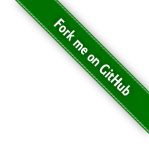serving¶
Through Towhee’s api_service interface, you can quickly convert the defined pipelines into http/gRPC services. Let’s take a simple example to see how to use the api_service module
Define Service¶
import typing as T
from pydantic import BaseModel
from towhee import AutoPipes, api_service
from towhee.serve.io import JSON, TEXT
# Create a service object
# The / interface will be generated and the string passed in desc will be returned
service = api_service.APIService(desc="Welcome")
# Create sentence_embedding pipeline
stn = AutoPipes.pipeline('sentence_embedding')
# Define a /embedding interface,
# the inputs is TEXT(str)
# the output is ndarray
@service.api(path='/embedding', input_model=TEXT(), output_model=NDARRAY())
def embedding(text: str):
return stn(text).to_list()
# JSON IO supports defining some complex data structures by using pydantic
class Item(BaseModel):
url: str
ids: T.List[int]
@service.api(path='/echo', input_model = JSON(Item), output_model=JSON(Item))
def echo(item: Item):
return item
HTTP Server¶
start server¶
from towhee.serve.http.server import HTTPServer
HTTPServer(service).run('0.0.0.0', 8000)
Access Server¶
Access by Python code
import requests
from towhee.utils.serializer import from_json
requests.get('http://127.0.0.1:8000').json()
# Welcome
# The http server converts the ndarray type into a json string,
# It can be converted back through towhee's from_json interface.
from_json(requests.post('http://127.0.0.1:8000/embedding', json='hello world').content)
# ndarray
requests.post('http://127.0.0.1:8000/echo', json={'url': 1, 'ids': [1, 2]}).json()
# {'url': '1', 'ids': [1, 2]}
Access by Curl cmd
curl http://127.0.0.1:8000
# Welcome
curl -X POST -H "Content-Type: application/json" -d "hello, towhee" http://127.0.0.1:8000/embedding
# json_str
curl -X POST -H "Content-Type: application/json" -d '{"url": "http://towhee.io", "ids": [1,2]}' http://127.0.0.1:8000/echo
# {"url": "http://towhee.io", "ids": [1, 2]}
gRPC Server¶
Start Server¶
from towhee.serve.grpc.server import GRPCServer
GRPCServer(service).run('0.0.0.0', 8000)
Access by gRPC Client
from towhee.serve.grpc.client import Client
c = Client('0.0.0.0', 8000)
# response
# code: int 0 success
# msg: str
# content: Any
respones = c('/echo', {'url': 1, 'ids': [1, 2]})
respones = c('/embedding', 'hello')
c.close()
# or
with Client('0.0.0.0', 8000) as c:
respones = c('/echo', {'url': 1, 'ids': [1, 2]})
respones = c('/embedding', 'hello')
Start HTTP and gRPC Server¶
from towhee.serve.http.server import HTTPServer
from towhee.serve.grpc.server import GRPCServer
s = GRPCServer(service)
s.start('0.0.0.0', 8002)
HTTPServer(service).run('0.0.0.0', 8000)
IO¶
Currently supports TEXT, BYTES, JSON and NDARRAY
TEXT/BYTES¶
TEXT and BYTES correspond to the str and bytes types in Python respectively.
JSON¶
The JSON IO of the HTTPServer can support the ndarray type, and the client can use it with the from_json function.
The gRPC Server can only handle some basic types and cannot handle ndarray. You can use the to_json function provided by towhee to convert it into json_str.
Can be used with pydantic
NDARRAY¶
Returned in Json form in HTTP Server, converted to ndarray by from_json.
gRPC client can return ndarray directly.
Only limited dtypes are supported:
np.object |
np.float32 |
np.float64 |
np.bool_ |
np.int32 |
np.int64 |
np.uint32 |
np.uint64 |
